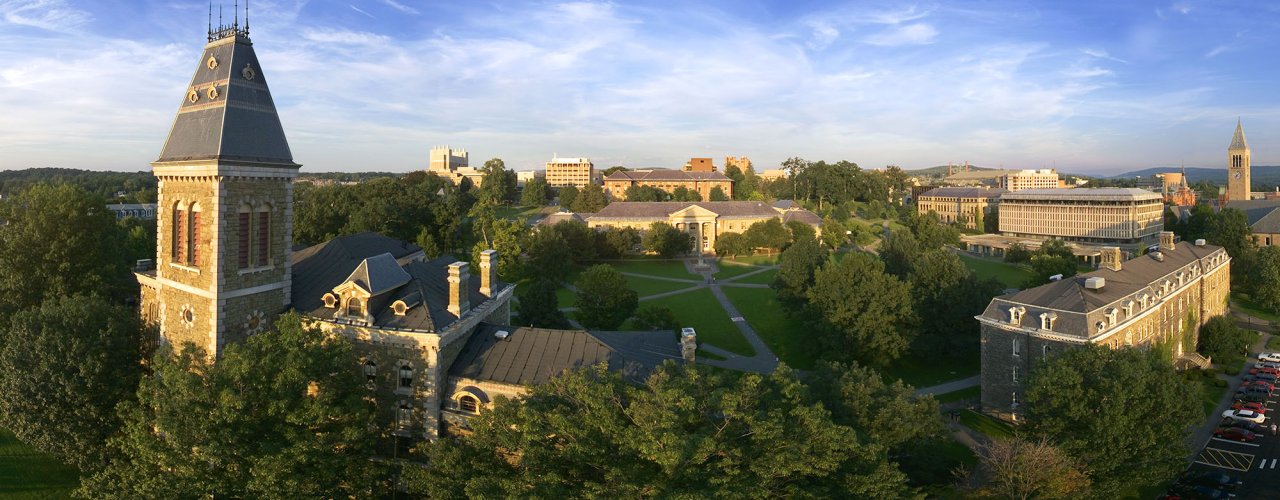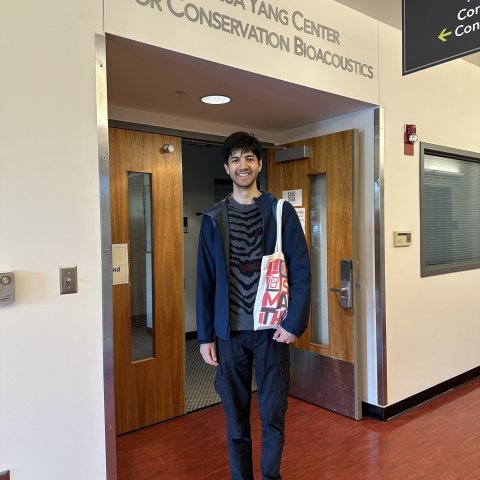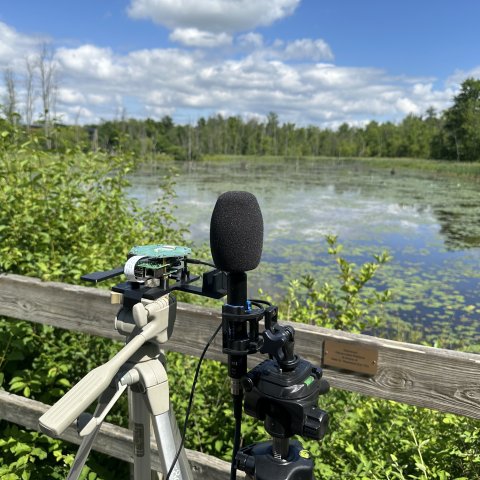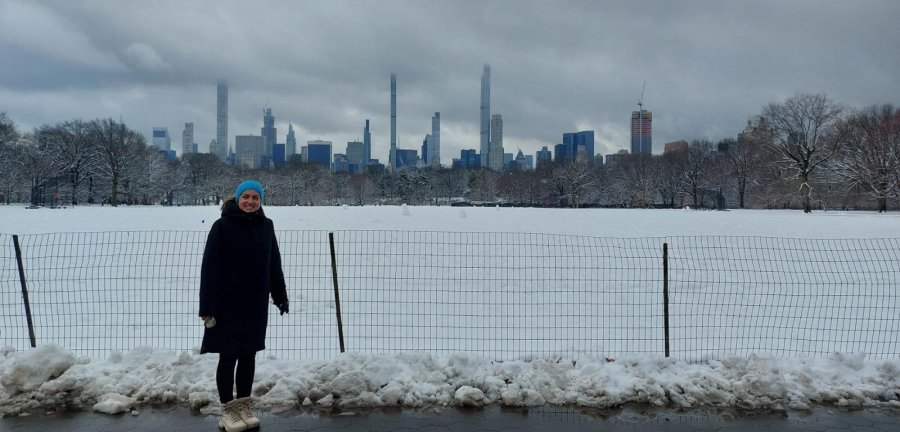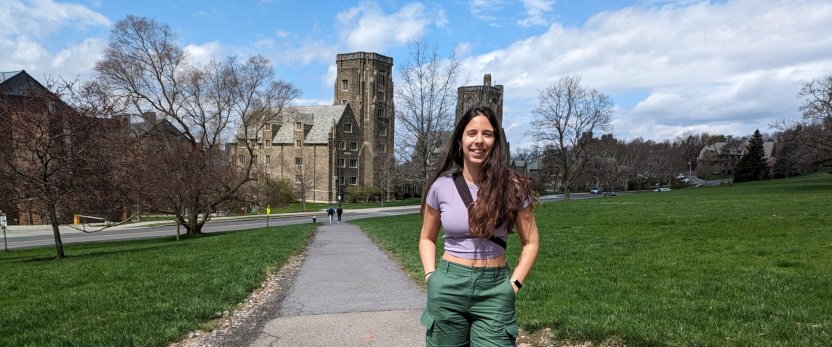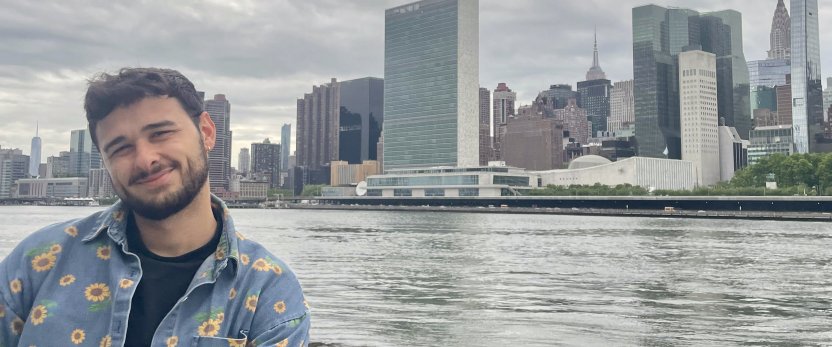Imperial College London Global Fellows
Four Imperial College London PhD students share their experiences at Cornell during the 2023-24 academic year. They partnered with Cornell professors and researchers as part of the Imperial Global Fellows Fund.
Eleven PhD students from Imperial College London were placed at Cornell last year. Students were hosted by Cornell departments across a range of fields: engineering, global development, plant science, chemistry, and more. Imperial College London is one of Cornell's Global Hubs partners.
Neel Le Penru
Neel Le Penru, a design engineering student from Imperial, worked with Holger Klinch and Lisa Yang in the Center for Conservation Bioacoustics at the Lab of Ornithology.
"It was inspiring to join a community of researchers at the forefront of bioacoustics who are leading advancements in the technical and socio-environmental aspects of this field. I learned cutting-edge techniques and the importance of engaging local communities worldwide through accessible training that enables them to use bioacoustic monitoring to meet their conservation needs.
My colleagues at Imperial and I are now collaborating with the Yang Center’s engineering team to create a new microphone array board for our custom recorder, the Multichannel Acoustic Autonomous Recording Unit (MAARU). This should overcome the shortage of commercially available microphone arrays and make multichannel ecosystem monitoring accessible to more researchers and conservationists. I am delighted to continue working with the Cornell team and excited to see the outcomes of our collaboration!"
Lisa Doetsch
Lisa Doetsch studies bioengineering and worked with Weill Cornell Medicine Professor Samie Jaffrey.
“Professor Samie Jaffrey is an expert in RNA aptamers, which are small RNA molecules with unique structures that allow them to bind to specific targets and could be useful for diagnostics or therapeutics. I am working on developing new techniques for finding RNA aptamers for specific targets, as conventional methods can be labor-intensive and ineffective.
I absolutely love my project and have learned so much from the great scientists at Cornell. On top of that, getting the chance to live in NYC and meet lots of people from different countries: the experience couldn't have been better!”
Mariana Monteiro
Chemical engineering student Marian Monteiro worked with Fengqi You, Roxanne E. and Michael J. Zak Professor in Energy Systems Engineering. Their work included the development of a method to optimize the size of metabolic network models, which are crucial for understanding metabolic functions and potential protein targets in synthetic and systems biology.
“Collaborating with the PEESE research group at Cornell, known for their expertise in machine learning tools and optimization, was indispensable. Their insights and guidance undoubtedly enhanced the quality of my research project. It was an especially fruitful experience for me, as most of the group works in completely different applications, allowing me to see how the same methodologies can be used in various fields.
Being on such a beautiful campus, with landscapes I'd never seen before, really enriched the whole experience. I loved the vibrant Cornell student community and the great spirit on campus. During my time there, I had the opportunity to attend inspiring talks by other academics. Plus, the food on campus was fantastic!”
Pierre-Raphael Schiratti
Pierre-Raphael Schiratti spent the summer at Cornell, working with the Sabuncu Lab—a collaborative research group bridging Cornell Tech and Weill Cornell Medicine Radiology—focusing on reducing the risks associated with mismatched heart transplants by improving the precision of donor-recipient matches.
“Cornell provided a unique opportunity to explore new ideas beyond my PhD focus, especially through collaboration with a multidisciplinary team working with diverse medical data. A pivotal discussion with Heejong, an instructor in the Sabuncu Lab, inspired me to adopt innovative approaches for analyzing longitudinal scan data, which is key for tracking treatment progress and relapse."

